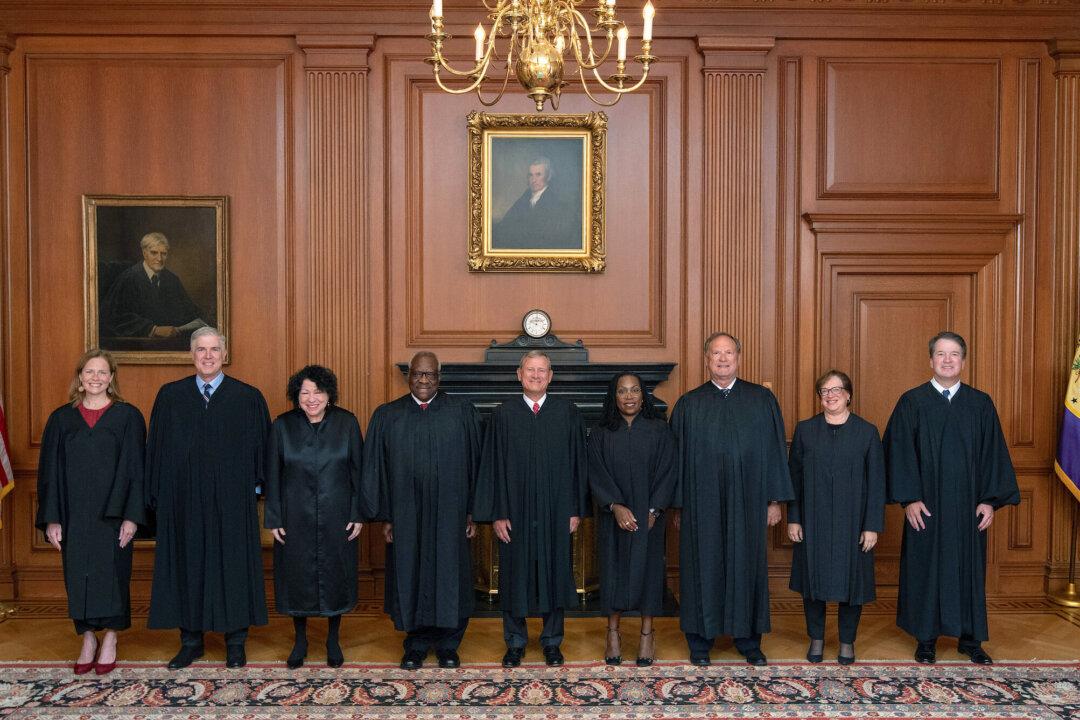A group of 20 attorneys general requested the Supreme Court to overturn a lower court’s ruling on enforcing bans on homeless encampments.
This week, 20 attorneys general from Republican-controlled states petitioned the high court in the case of Johnson v. City of Grants Pass after the U.S. Appeals Court for the Ninth Circuit ruled last year that the Oregon city of Grants Pass violated the U.S. Constitution’s Eight Amendment by enforcing an ordinance to prevent people from sleeping in public if they have no other place to go.





